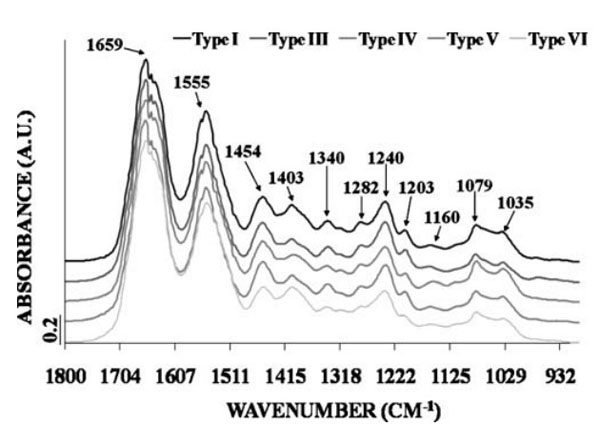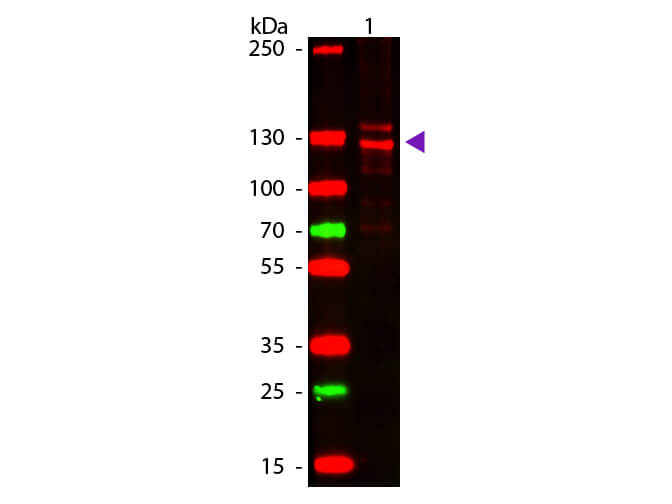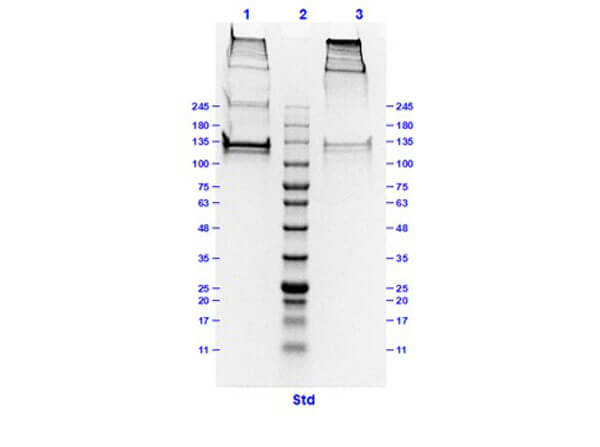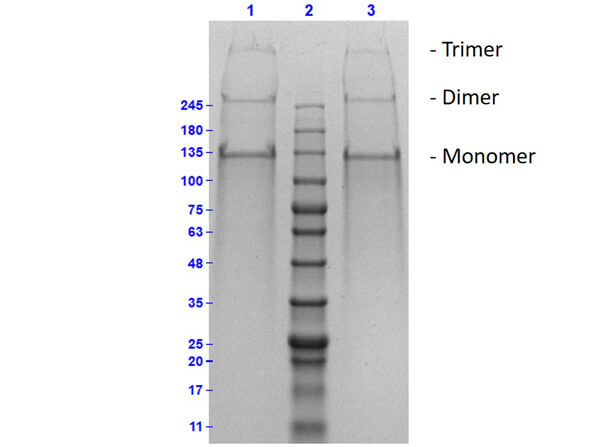Collagens as Antibody Controls
It cannot be understated that the appropriate controls should be included in experimental design when type-specific anti-collagen antibodies are used to ensure the success of the experiment and data reproducibility. Only highly purified and type-specific collagen proteins should be used as controls that are themselves free of impurities, including serum proteins, other collagen proteins, and non-collagen extracellular matrix proteins. Standards must not only be physically pure for collagen but also be immunologically pure for the type of collagen to be used as controls in experiments of this type. Type-specific anti-collagen antibodies should be selected that are appropriate for the detection of collagens present in the tissue to be tested, and these antibodies should be used with protocols designed to optimize antibody performance for the collection of high-quality data ultimately intended to help better understand the biology of these proteins.
Human Collagen Proteins
| Product | Origin | Applications |
| Human Collagen Type I | Human | SDS-PAGE, WB, Cellular Assay |
| Human Collagen Type II | Human | SDS-PAGE, WB |
| Human Collagen Type III | Human | SDS-PAGE, WB |
| Human Collagen Type IV | Human | SDS-PAGE, ELISA |
| Human Collagen Type V | Human | SDS-PAGE |
| Human Collagen Type VI | Human | SDS-PAGE, Cellular Assay |
Bovine Collagen Proteins
| Product | Origin | Applications |
| Bovine Collagen Type I | Bovine | SDS-PAGE, WB |
| Bovine Collagen Type II | Bovine | SDS-PAGE |
| Bovine Collagen Type III | Bovine | SDS-PAGE |
| Bovine Collagen Type IV | Bovine | SDS-PAGE |
| Bovine Collagen Type V | Bovine | SDS-PAGE |
| Bovine Collagen Type VI | Bovine |
Featured Collagen Proteins

Frequently Asked Questions


